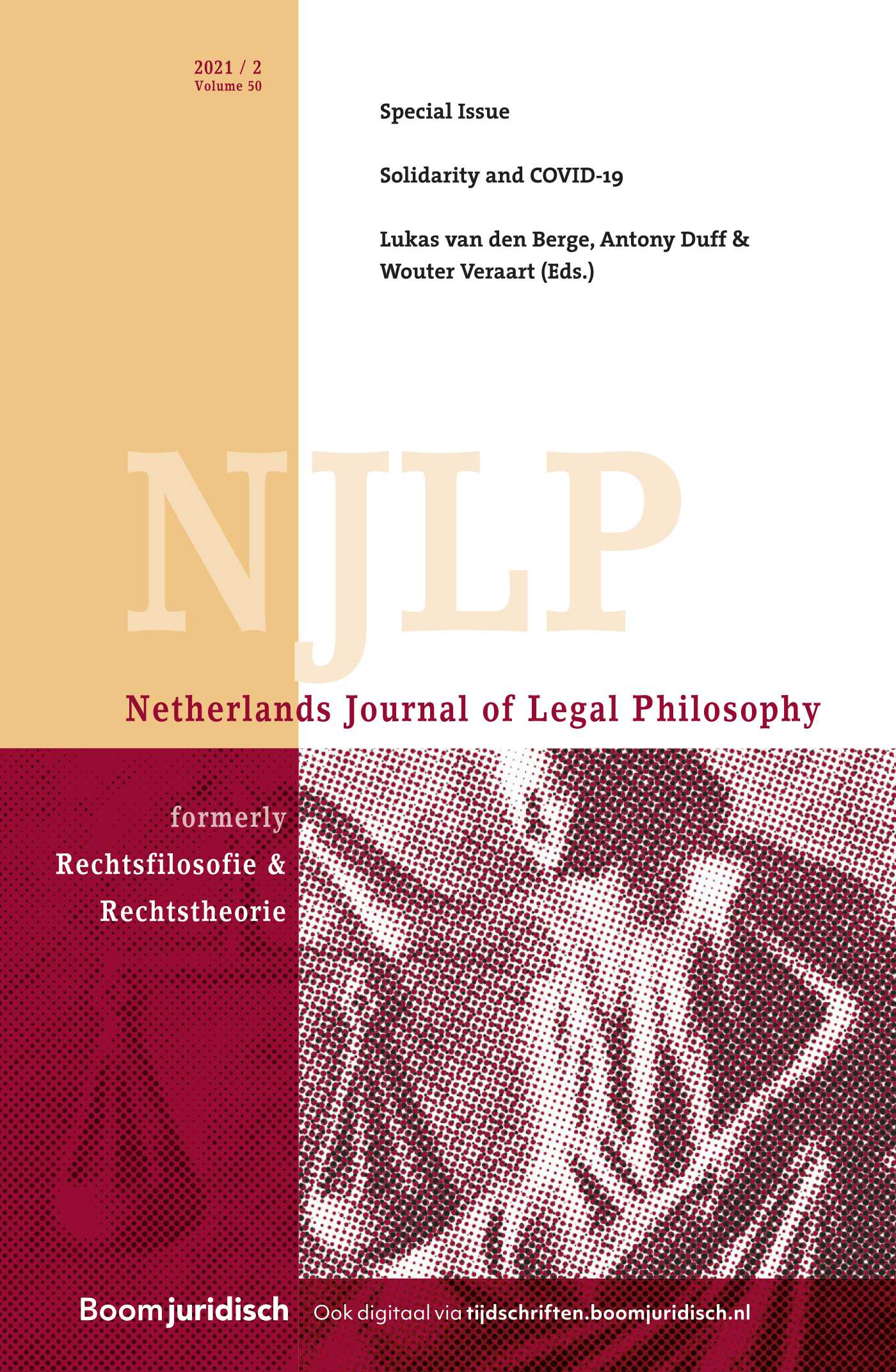|
‘Illiberal’ is an adjective that is commonly used by scholars. For example, they might speak of ‘illiberal cultures’, ‘illiberal groups’, ‘illiberal states’, ‘illiberal democracies’, ‘illiberal beliefs’, and ‘illiberal practices’. Yet despite its widespread usage, no in-depth discussions exist of exactly what it means for someone or something to be illiberal, or might mean. This article fills this lacuna by providing a conceptual analysis of the term ‘illiberal practices’, which I argue is basic in that other bearers of the property of being illiberal can be understood by reference to it. Specifically, I identify five ways in which a practice can be illiberal based on the different ways in which this term is employed within both scholarly and political discourses. The main value of this disaggregation lies in the fact that it helps to prevent confusions that arise when people use the adjective ‘illiberal’ in different ways, as is not uncommon. |


Netherlands Journal of Legal Philosophy
About this journalSubscribe to the email alerts for this journal here to receive notifications when a new issue is at your disposal.
| Editorial |
|
| Authors | Iris van Domselaar |
| Author's information |
| Article |
|
| Keywords | Liberalism, Illiberalism, Illiberal practices, Extremism, Discrimination |
| Authors | Bouke de Vries |
| AbstractAuthor's information |
| Article |
|
| Keywords | Vulerability Theory, Liberalism, Convention on the Rights of Persons with Disabilities (CRPD), Public Health, Capabilities Approach |
| Authors | Erwin Dijkstra |
| AbstractAuthor's information |
|
The public health systems of liberal states systematically fail to meet the goals and obligations of the Convention on the Rights of Persons with Disabilities, which aims to facilitate full societal participation and independent life choices by all impaired persons, as well as the unburdening of their private caretakers. This failure does not stem from a lack of money or effort by governments and other societal institutions, but flaws in the anatomy of these systems. As these systems confine institutional assistance to the needs of persons with certain delineated disabilities, they neglect the needs of other persons, whose disabilities do not fit this mould. The responsibility for the latter group thus falls to their immediate social circle. These private caretakers are in turn seldom supported. To remedy this situation, I will present the alternative paradigm of vulnerability theory as the possible foundation for a more inclusive approach to public health. |
| Article |
|
| Keywords | Geweten, feiten, Scholten, Kierkegaard, naastenliefde |
| Authors | Jos Vleugel |
| AbstractAuthor's information |
|
The role that Paul Scholten assigns to conscience in his legal methodology still leads to heated discussions in literature after almost 100 years. Recognizing that in case law the conscience of the judge can be of decisive importance is apparently problematic. It would facilitate political court rulings, make judicial judgment uncontrollable and could be arbitrary for the parties to the legal dispute. Not only Scholten’s view on the role of conscience in judicial decision making is “a stumbling block”. At least as great is the fuss about his representation of conscience. Only Christian lawyers could identify with this. This article attempts to shed new light on the above points of criticism by drawing attention to the following aspects of Scholten’s legal methodology: the role of the facts in establishing the law, the nature of the legal judgment and finally the grounds on which conscience may be determined. |
| Article |
|
| Keywords | rechtsstaat, toegang tot het recht, sociale dimensie, Nicholas Barber, Pierre Bourdieu |
| Authors | Nathalie Franziska Hendrika Schnabl |
| AbstractAuthor's information |
|
This paper considers access to the rule of law as a requirement for the well-functioning of the rule of law in society. In most rule of law debates, access to the rule of law is not a topic of discussion because these scholars focus themselves solely on the legalistic dimension of the rule of law. Barber was the first to mention the social dimension explicitly but without a theoretical framework. Based on the three capitals of Bourdieu, this paper offers a framework to determine the elements of the social dimension. With these capitals, barriers to the access to the rule of law for individuals can be identified, and solutions can be offered. |
| Article |
|
| Keywords | classicistisch politiek denken, constitutie, Van Hogendorp, Grondwet, politieke filosofie |
| Authors | Alban Mik |
| AbstractAuthor's information |
|
Gijsbert Karel van Hogendorp is the auctor intellectualis of the 1818 Dutch constitution. It was his sketch for a new constitution that was used as a starting point for the deliberations of its original drafting committee. Van Hogendorp justifies his constitution as a restoration of the Burgundian constitution that applied before the Dutch Republic. In recent literature Van Hogendorp’s restorational argument is presented as an invention of tradition. In this article an alternative explanation is presented, namely that it is part of a form of classicist political thought that was common during the ancien régime. Van Hogendorp describes his constitution as a moderate monarchy, in which the three principles of monarchy, aristocracy and democracy are properly balanced. And he mainly defends this mixed regime by pointing out that it is a restoration of the old Burgundian constitution of the Netherlands. This way of reasoning is, as will be shown, typically classicistic. |
| Book Review |
|
| Authors | Gijs van Maanen |
| Author's information |

 Issue 2
Issue 2